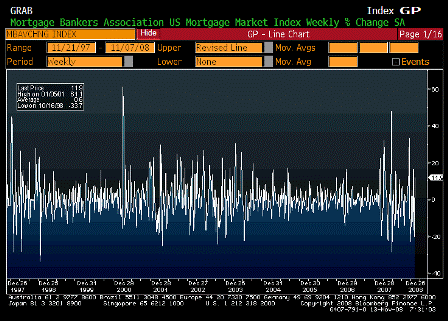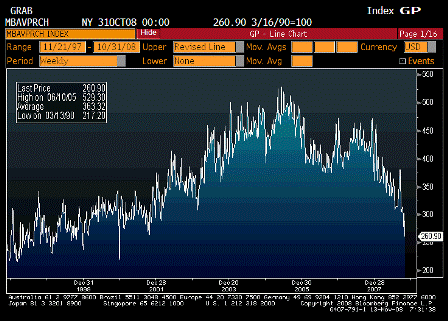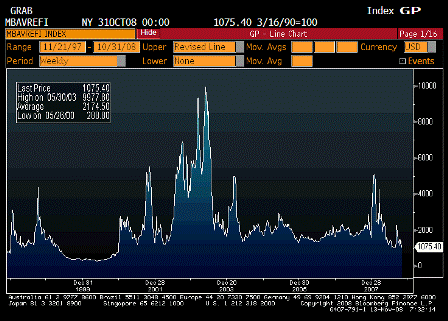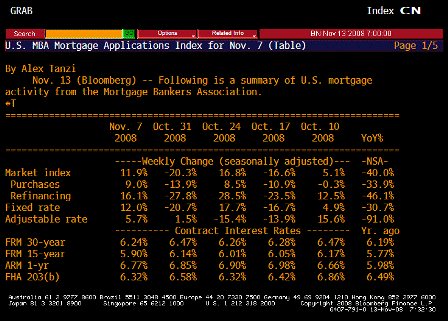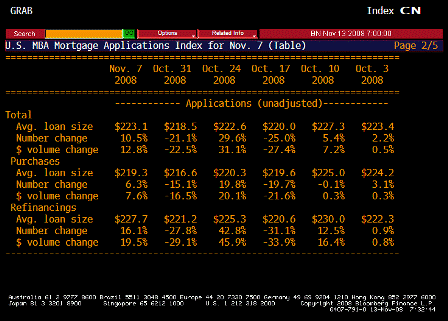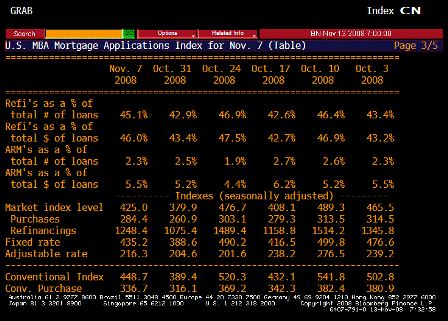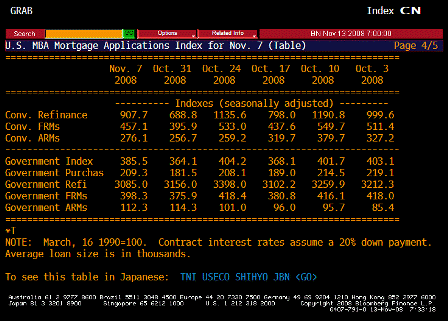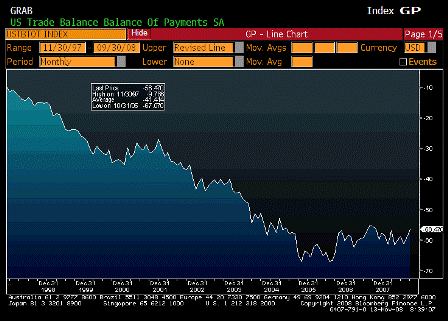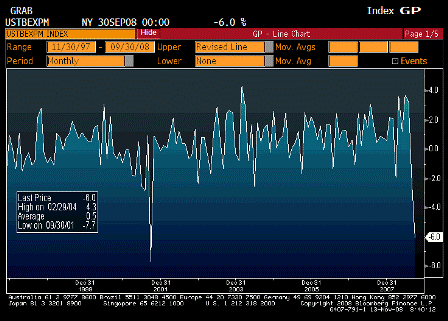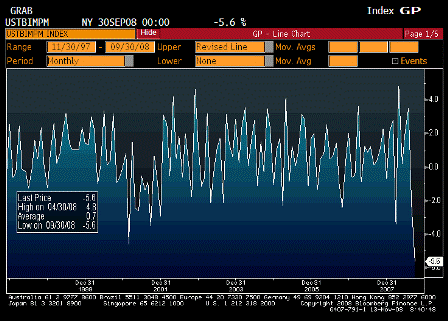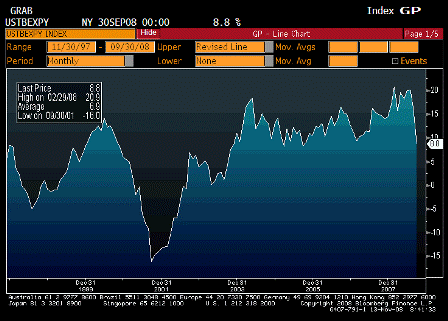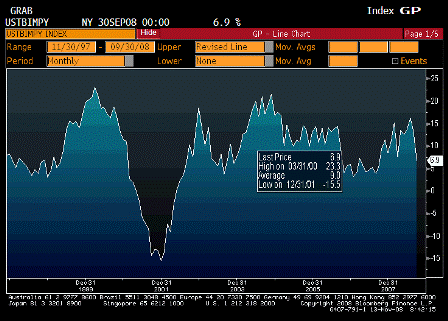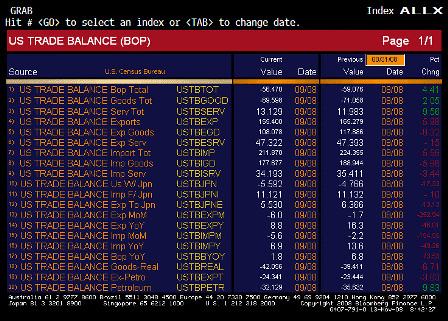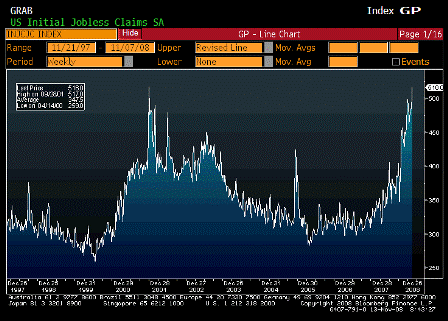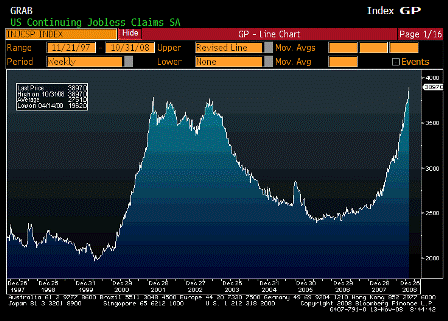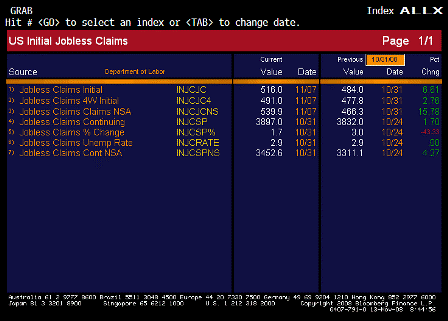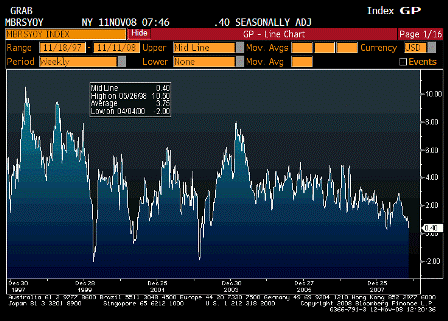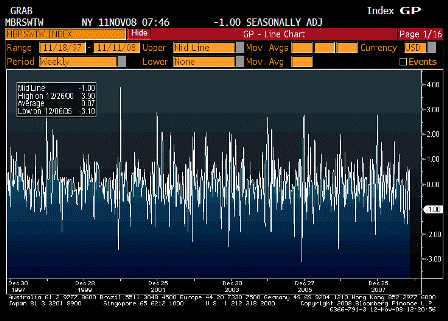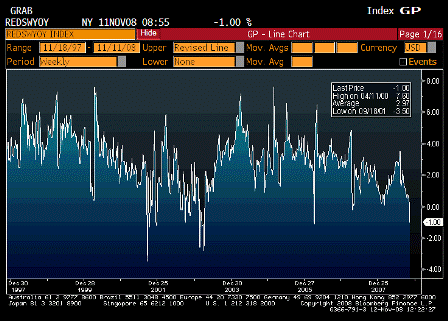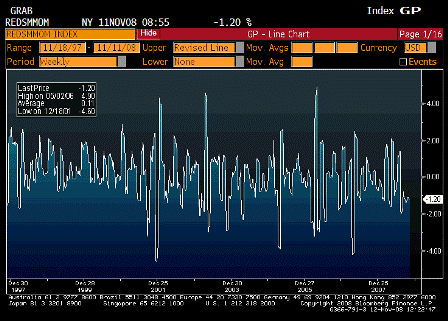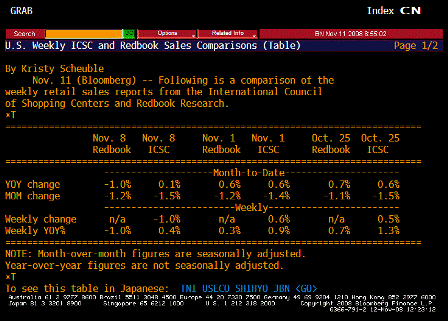[Skip to the end]
(email exchange)
>
> On Wed, Nov 12, 2008 at 10:31 AM, John wrote:
>
> Here is support for recent reviews and portfolio positions.
>
Yes, thanks, and ridiculous, of course. Comments below:
By Randall W. Forsyth
The yield curve and credit-default swaps tell the same story: The U.S. can’t borrow trillions without paying a price.
Not saying that at all!
What was once unthinkable has come to pass this year: massive bailouts by the Treasury and the Federal Reserve, with the extension of billions of the taxpayers’ and the central bank’s credit in so many new and untested schemes that you can’t tell your acronyms or abbreviations without a scorecard.
Even more unbelievable is that some of the recipients of staggering sums are coming back for a second round. Or that the queue of petitioners grows by the day.
But what happens if the requests begin to strain the credit line of the world’s most creditworthy borrower, the U.S. government itself? Unthinkable?
Yes, government spends first, then borrows.
Trillions are no hyperbole. The Treasury is set to borrow $550 billion in the current quarter alone and $368 billion in the first quarter of 2009. “Near-term pressures on Treasury finances are much more intense than we had thought,” Goldman Sachs economists commented when the government announced its borrowing projections last week.
Define ‘intense’ please…
It may finally be catching up with Uncle Sam. That’s what the yield curve may be whispering. But some economists are too deaf, or dumb, to get it.
The yield curve reflects anticipated Fed funds rate targets plus ‘technicals’ which can include misguided risk perceptions.
But the Treasury has not needed to issue longer term maturities. It can do it all in 3 month bills or even shorter maturities.
Treasury securities function to ‘offset operating factors’ and provide interest bear accounts as alternatives to the interest rate now paid on excess reserves.
And any constraints on government spending are self imposed.
[top]

